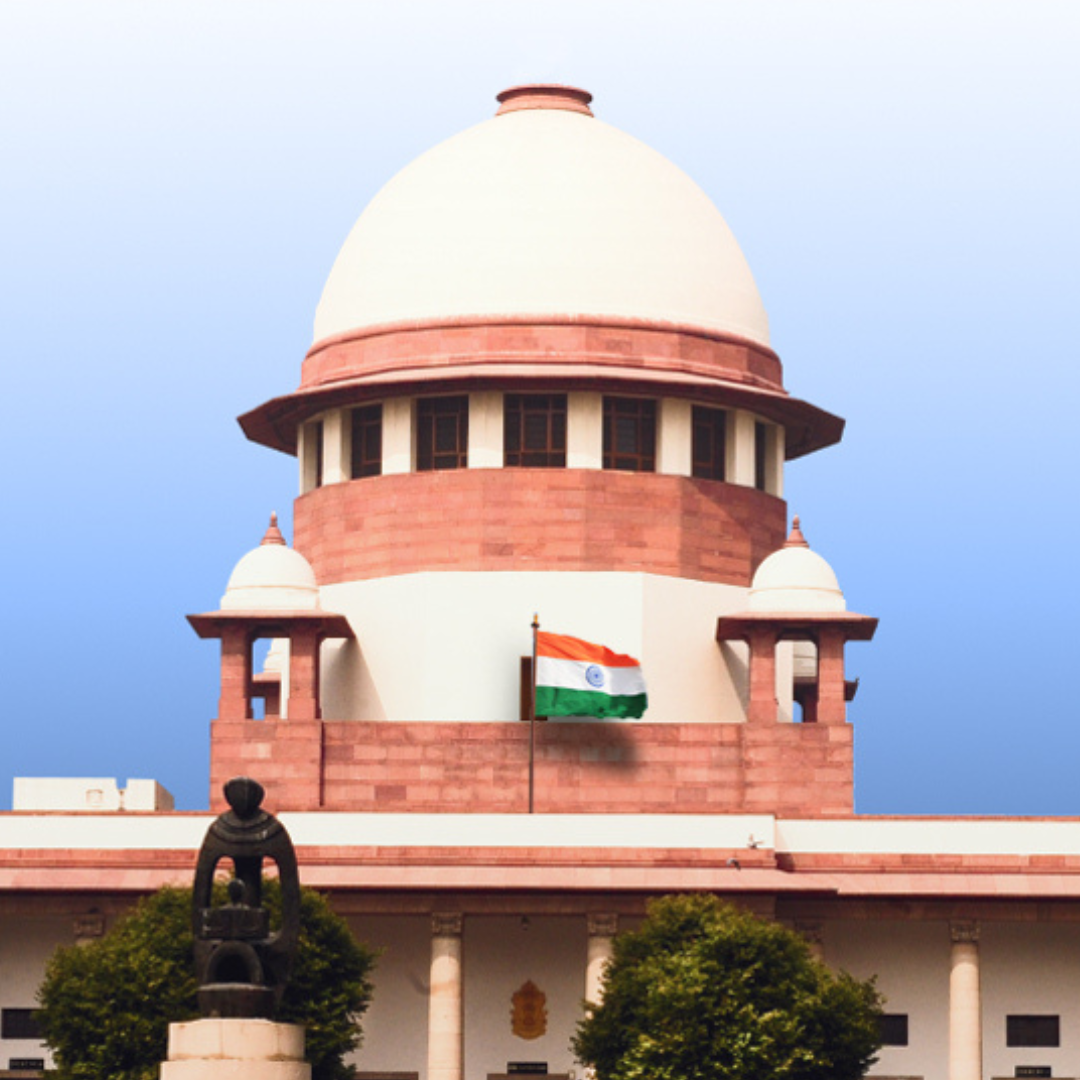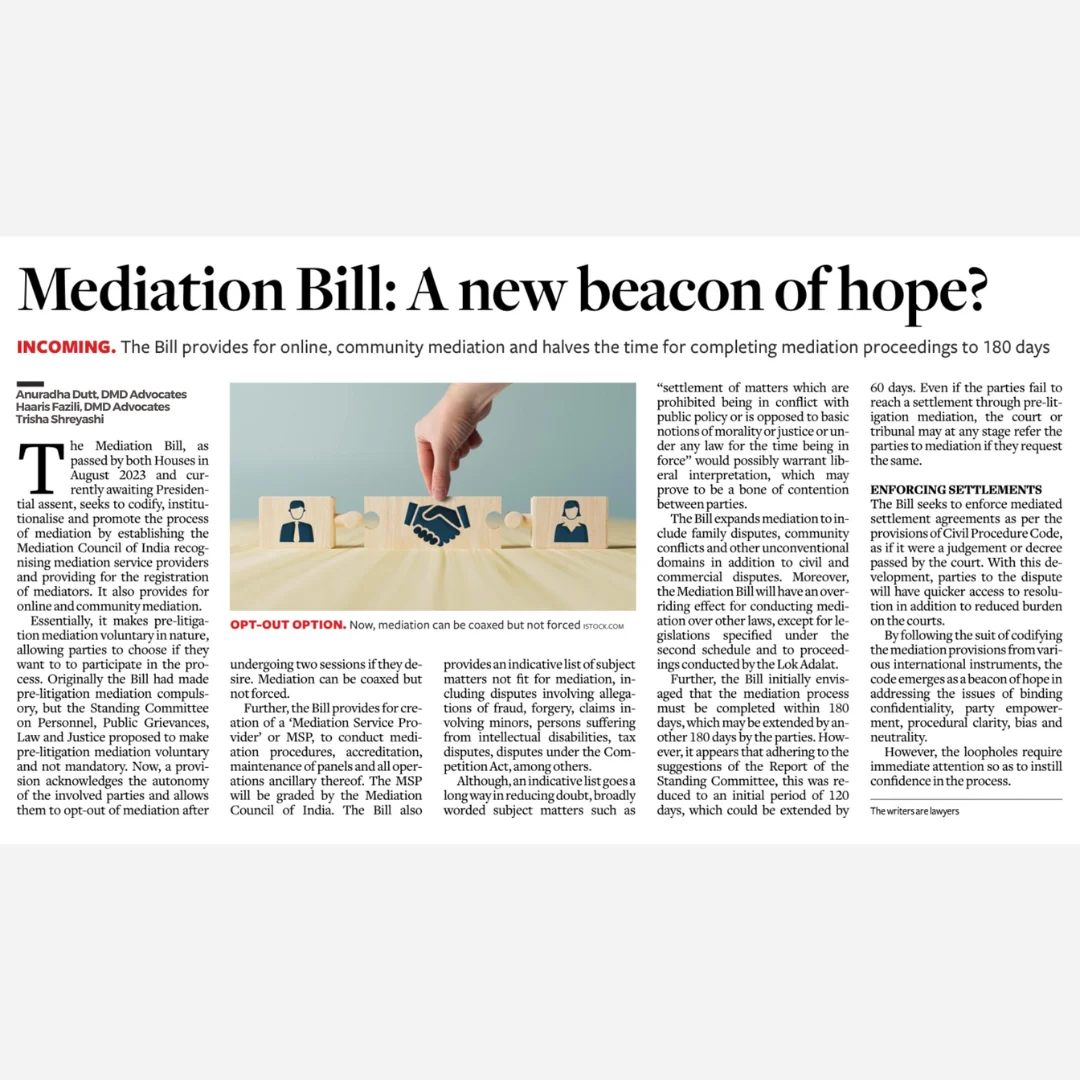Publications
Discussion Paper Monitoring Committee Under CIRP
26 Nov 2024
- DMD Advocates
- Blog
On November 19, 2024, the Insolvency and Bankruptcy Board of India (IBBI) issued a discussion paper aimed at strengthening the regulatory framework for establishing a mandatory monitoring committee under the Corporate Insolvency Resolution Process (CIRP). This initiative seeks to address challenges in the effective implementation of resolution plans under the Insolvency and Bankruptcy Code, 2016 (Code).
The need for a statutory monitoring committee stems from the Supreme Court’s ruling in the case of State Bank of India & Ors v. The Consortium of Mr. Murari Lal Jalan and Mr. Florian Fritsch & Anr. [2024 SCC OnLine SC 3187], which highlighted the necessity of such committees. In this case, the Court invoked its powers under Article 142 of the Constitution to order the liquidation of Jet Airways after the resolution plan had not been implemented for five years. The Court set aside the NCLAT’s order that allowed the ownership transfer to the successful resolution applicant without full payment, underscoring the importance of resolution plan implementation.
Currently, while Regulation 38 of the CIRP Regulations, 2016 provides basic recognition of monitoring committees, it is not mandatory. The discussion paper proposes to make the constitution of such committees mandatory for implementation of all resolution plans. The proposed framework gives the Committee of Creditors (CoC) the authority to decide on the composition, constitution, and functioning period of the monitoring committee, ensuring the CoC’s commercial wisdom in these decisions.
Key points outlined in the discussion paper include:
1. Composition: The committee will consist of members with a direct stake in the resolution’s success, ensuring a vested interest in the plan’s effective implementation.
2. Chairperson: The committee will be chaired either by the resolution professional who handled the CIRP or another insolvency professional as decided by the CoC.
3. Nominees: The committee will include nominees from both the CoC and the successful resolution applicant in equal numbers.
4. Flexibility: The composition may be adjusted, allowing the inclusion or exclusion of members as deemed necessary by the committee.
5. Expenses: The successful resolution applicant will bear all costs associated with the monitoring committee.
6. Functionality: The committee will oversee the implementation of the resolution plan, ensuring statutory compliance and facilitating the transfer of assets and control to the successful applicant.
7. Duration: The committee will remain operational until the complete implementation of the resolution plan, with provisions for seeking directions from the Adjudicating Authority if implementation deviates from the agreed terms of the resolution plan. The committee will also retain the flexibility to decide a lesser period if the resolution plan provides for substantial implementation during such tenure with recorded reasons.
This proposal aims to ensure that resolution plans are implemented effectively and in accordance with the Code, improving transparency and accountability.
To access the discussion paper, click here.





























